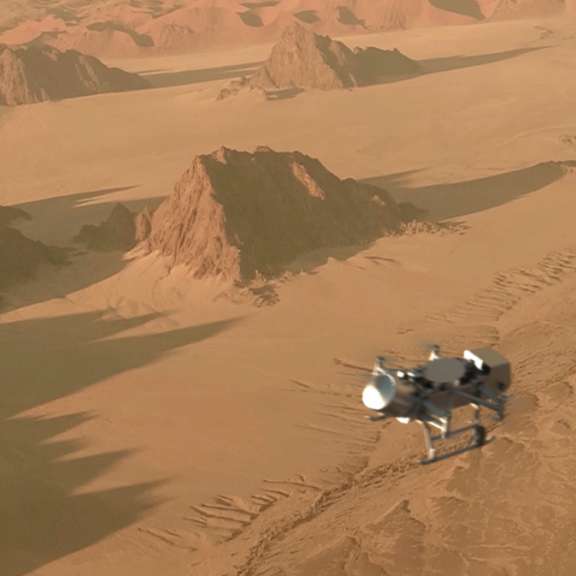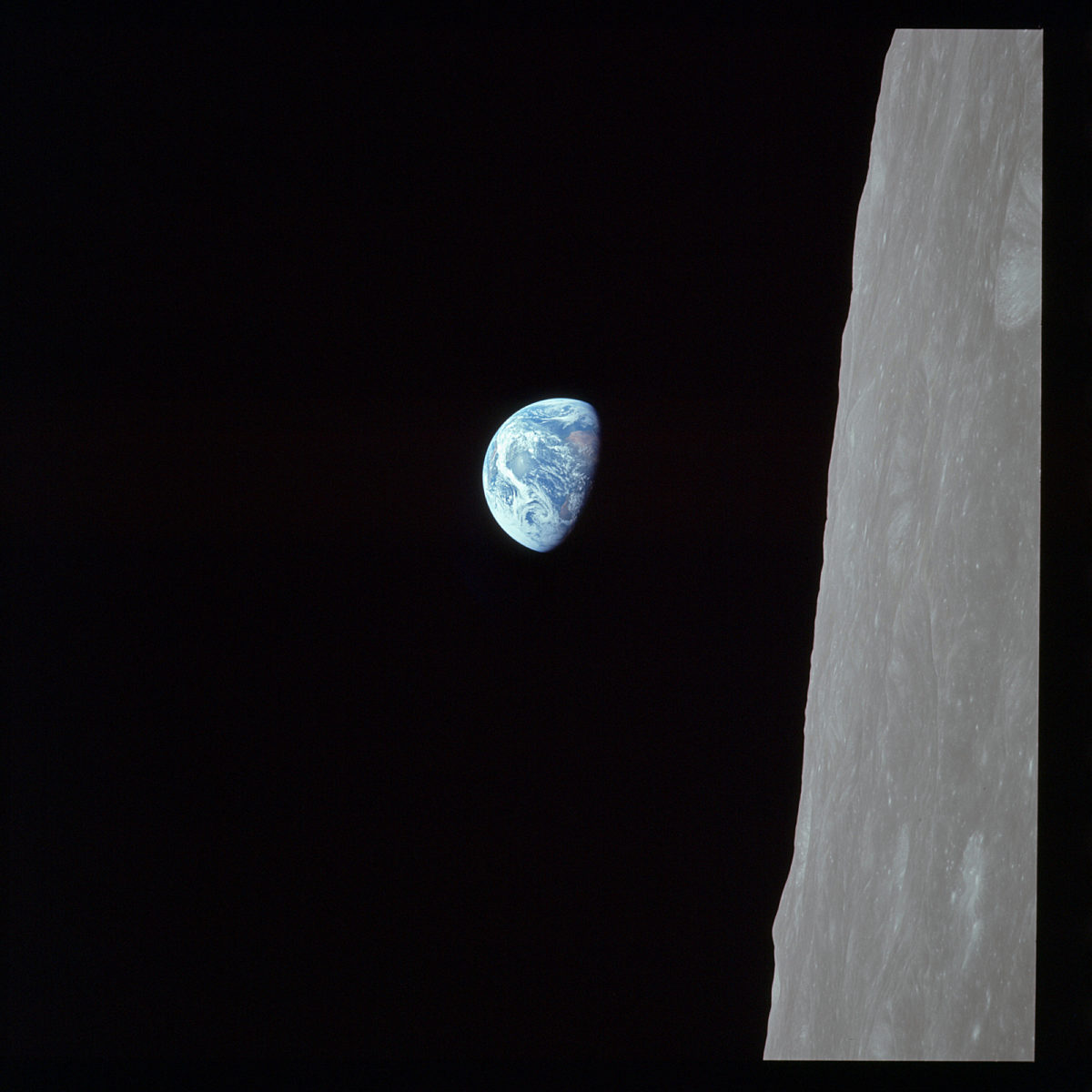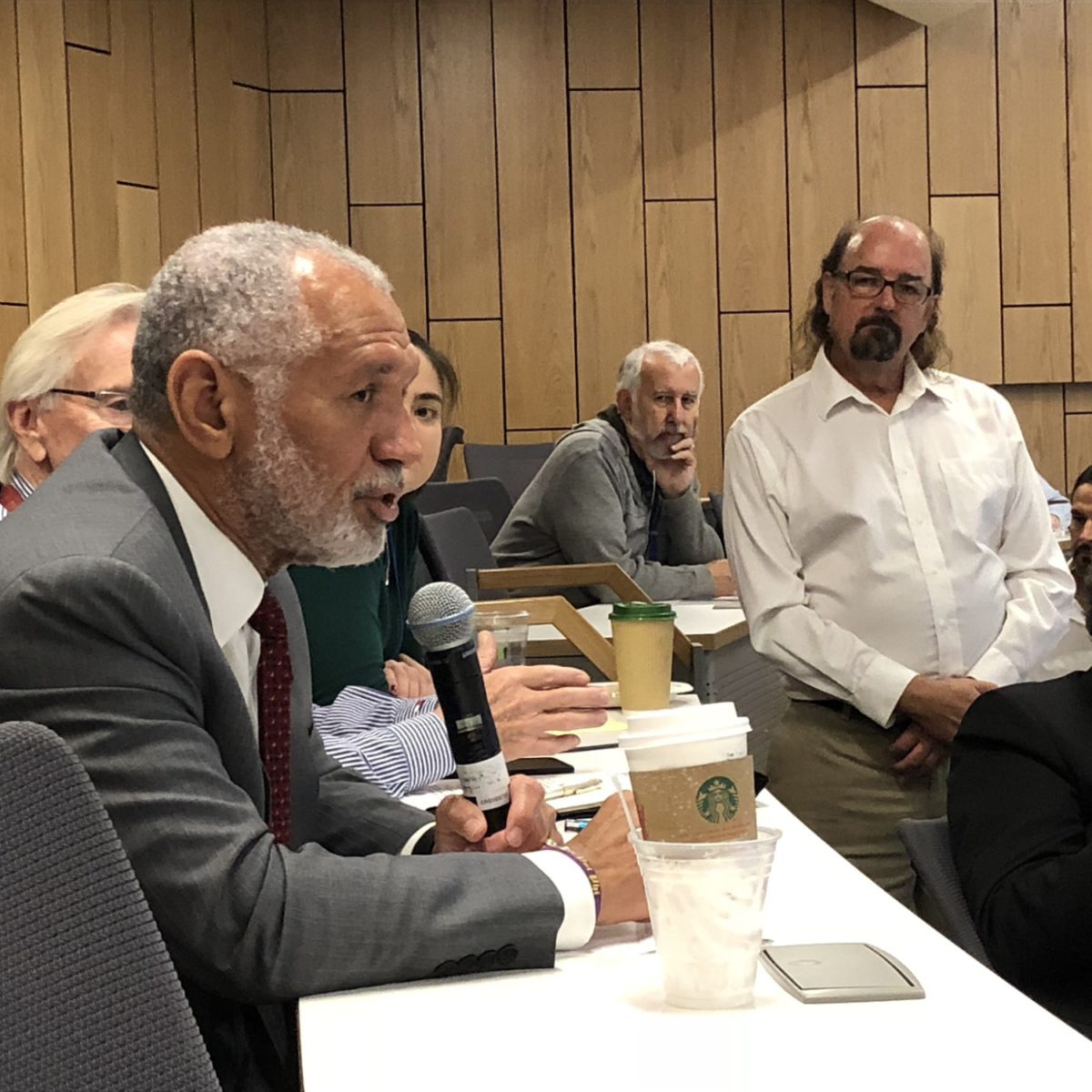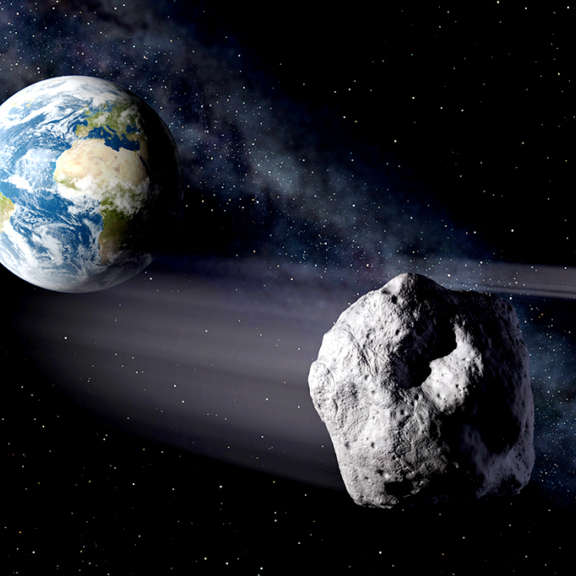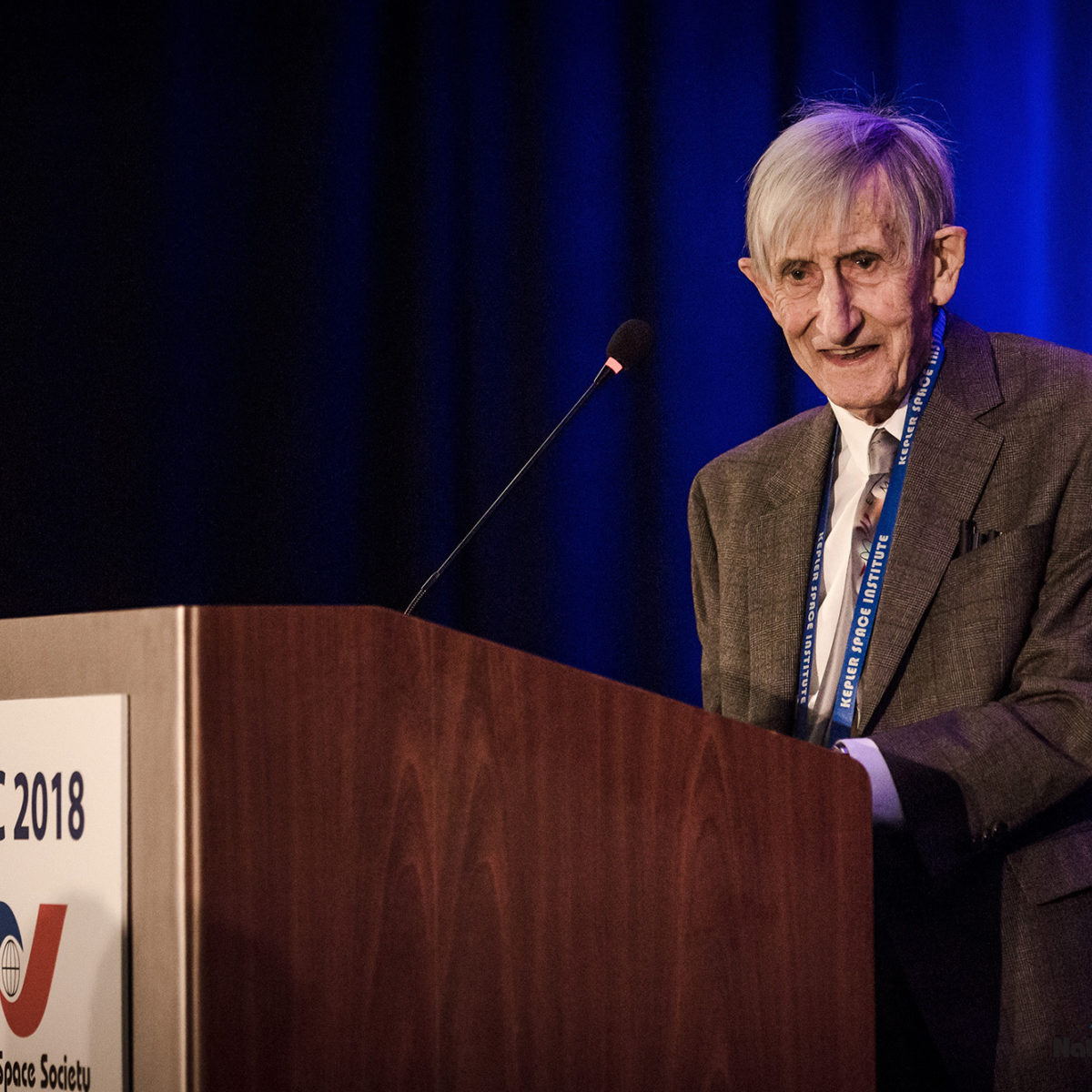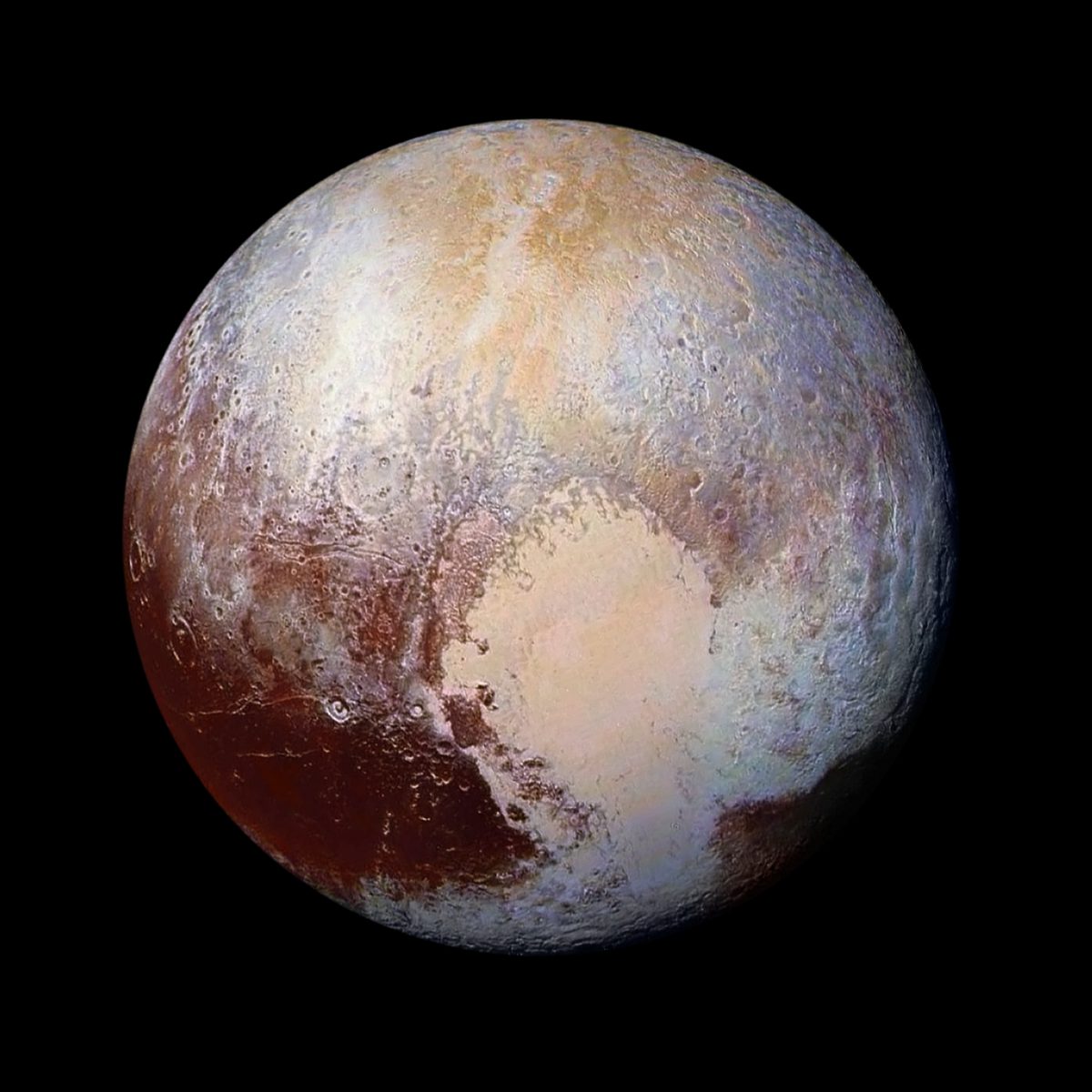Since 2002, Planetary Radio has visited with a scientist, engineer, project manager, advocate, or writer who provides a unique perspective on the quest for knowledge about our Solar System and beyond. The full show archive is available for free.
Search Planetary Radio
magine soaring over what may be the solar system’s most Earth-like world, if you ignore the chill. If funded, the nuclear electric-powered Dragonfly will do exactly this. Principal Investigator Elizabeth “Zibi” Turtle shares her enthusiasm.
The New Horizons spacecraft will reach faraway Kuiper Belt object 2014 MU69 in the first minutes of 2019. Will the body informally known as Ultima Thule be as mysterious and exciting as Pluto?
This is the 50th anniversary of the most audacious space mission in history. Apollo 8 blazed a path for the first moon landing seven months later, and gave a troubled nation reason for hope and pride.
He led NASA for eight years, but not till he had flown on four Space Shuttle missions and enjoyed a long military career. Charlie Bolden talks with Mat about his time at the space agency and where we’re headed on the final frontier.
Join 1,000 anxious yet thrilled space fans at Caltech for our live InSight landing party. You’ll meet Mat Kaplan’s onstage experts and check in with Bill Nye and Emily Lakdawalla at the Jet Propulsion Lab.
NASA announced on November 19th that the multi-billion dollar 2020 Mars rover will land in Jezero crater, where it will begin the search for the signature of past life.
The Kepler mission has ended. Listen to highlights of the October 30th media briefing that included the father of the fantastically successful planet finder, William Borucki. Then catch the thoughts of Planetary Society editors and commentators Jason Davis and Emily Lakdawalla.
LightSail 2 is not the only solar sail in the universe. NASA’s Marshall Space Flight Center and the Jet Propulsion Lab are preparing to send NEA Scout on a long, light-propelled journey to a near Earth asteroid.
Happy Astronomy Day, October 13, 2018! We salute humankind’s long history of stargazing by checking in on what will be our planet’s largest telescope. Patrick McCarthy is an astronomer and a leader of the Giant Magellan Telescope project. He returns with a report on the instrument’s status, followed by a fascinating tour of the GMT facility.
The Dean of space policy, John Logsdon, returns with stories and a new book of original documents that shaped the US space program from the birth of NASA to SpaceX. Planetary Society CEO Bill Nye reports in from this year’s International Astronautical Congress in German, while Senior Editor Emily Lakdawalla wraps up a working tour of New Zealand. Then join Bruce and Mat for this week’s What’s Up.
Elsa Montagnon is Spacecraft Operations Manager for the European/Japanese mission leaving for our solar system’s innermost planet very soon. She joins us to talk about the long journey ahead.
The dust is settling on the Red Planet. Is the remaining Mars Exploration Rover about to rise and shine after three months of slumber? MER Project Manager John Callas returns with a realistic yet hopeful assessment.
Our world was rocked by last week’s announcement of good radar evidence for a liquid water “lake” under the Red Planet’s south pole. Senior Editor Emily Lakdawalla introduces us to the story that is then taken up by two of host Mat Kaplan’s favorite Martians. The Goddard Space Flight Center’s James Garvin headed NASA’s Mars exploration program, while NASA Ames astrobiologist Chris McKay co-founded the Mars Underground more than 35 years ago.
Japan’s Hayabusa2 is just 6 kilometers from asteroid Ryugu as it prepares to snatch samples of the space rock for return to Earth. ISAS/JAXA Director General and former Hayabusa Mission Project Manager Hitoshi Kuninaka joins us for a conversation about the spacecraft and what’s ahead.
The dinosaurs regret their lack of a space program. 200 million years later, humans are gearing up to defend themselves from a species-ending rock.
There’s so much more to Freeman Dyson than the Dyson Sphere. The mathematician, physicist, futurist and author is one of the greatest and most original minds of our era.
Planetary geologist Ellen Stofan has just become Director of the most popular museum in the United States. The NASM protects and shares the greatest collection of space and aviation treasures on Earth.
The New Horizons mission was a triumph, revealing Pluto as an utterly unique and beautiful world. But the mission first had to survive challenge after challenge, fighting to be developed, meeting a nearly impossible launch deadline, and then narrowly avoiding disaster when it was barely a week from its destination.
Join us for an utterly fascinating live conversation with Emily Lakdawalla about her brand new book, The Design and Engineering of Curiosity: How the Mars Rover Performs Its Job. Also joining us at Caltech were Curiosity Project Scientist Ashwin Vasavada and JPL Research Scientist Abigail Fraeman.
The multi-award winning science fiction author, futurist and speaker returns to Planetary Radio for a wide-ranging conversation about robots and humans in space, empathetic artificial intelligences, how we can survive the Singularity and much more.


 Explore Worlds
Explore Worlds Find Life
Find Life Defend Earth
Defend Earth


